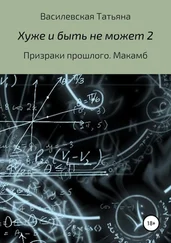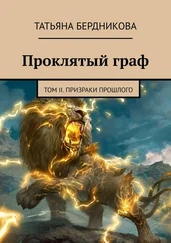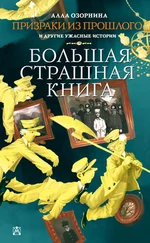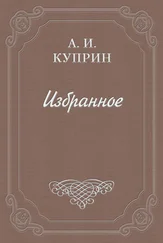Carlo Caduff, The Pandemic Perhaps: Dramatic Events in a Public Culture of Danger (Berkeley: University of California Press, 2015), 7–8.
Ulrich Beck, «The Anthropological Shock: Chernobyl and the Contours of the Risk Society», Berkeley Journal of Sociology 32 (1987): 153–65.
Jeffrey K. Olick, In the House of the Hangman: The Agonies of German Defeat (Chicago: University of Chicago Press, 2005), 58–64.
«Массовое производство трупов» — фраза Ханны Арендт. См.: «The Concentration Camps», Partisan Review 15 (1948): 745.
Robert Jay Lifton, «On Death and Death Symbolism: The Hiroshima Disaster», The American Scholar 34:2 (Spring 1965): 259.
Karl Jaspers, «Is Science Evil? Answering the Attack on Modern Knowledge and Technology », Commentary , March 1, 1950.
Richard Bessel, Germany 1945: From War to Peace (New York: Harper-Collins, 2009), 178.
Clemens Escher, «Deutschland, Deutschland, Du mein Alles!» Die Deutschen auf der Suche nach einer neuen Hymne , 1949–1952 (Leiden: Schöningh, 2017), 27–28; Peter Limbach, «Trizonesien-Lied sorgte 1949 für Aufregung», Kölner Stadt Anzeiger , November 5, 2004. Доступно онлайн: https://www.ksta.de/trizonesien-lied-sorgte-1949-fuer-aufregung-14563906, April 3, 2018.
Olick, In the House of the Hangman , 65–94.
R. M. Douglas, Orderly and Humane: The Expulsion of the Germans After the Second World War (New Haven: Yale University Press, 2012), 1.
Will-Erich Peuckert, Hochwies: Sagen, Schwänke, und M ä rchen (Göttingen: Schwartz, 1959), vii.
Thomas A. Kohut, A German Generation: An Experiential History of the Twentieth Century (New Haven: Yale University Press, 2012), 182.
«Bericht aus Akten der Geschäftsführenden Reichsregierung Dönitz von Ende März 1945», в кн.: Heinz Boberach, ed., Meldungen aus dem Reich, 1938–1945 , Band 17 (Herrsching: Manfred Pawlak, 1984), 6738.
Michael Geyer, «There Is a Land Where Everything Is Pure: Its Name Is Death: Some Observations on Catastrophic Nationalism», in Greg Eghigian and Matthew Paul Berg, eds., Sacrifice and National Belonging in Twentieth-Century Germany (College Station, TX: Texas A&M University Press, 2002), 125; см. также: Sven Keller, Volksgemeinschaft am Ende: Gesellschaft und Gewalt, 1944–45 (Munich: Oldenbourg Vlg., 2013); Michael Patrick McConnell, «Home to the Reich: The Nazi Occupation of Europe's Influence on Life Inside Germany, 1941–1945» (PhD dissertation, University of Tennessee, Knoxville, 2015).
Thomas Brodie, «German Society at War, 1939–45», Contemporary European History 27:3 (2018): 505.
H. Kretz, «Folgen der Sterilisation: Zur Frage der Entschädigung Zwangssterilisierter nach dem Bundesentschädigungsgesetz», Medizinische Klinik: Die Wochenschrift f. Klinik u. Praxis , 62. Jhg., II. Halbjahr 1967, 1301.
Franziska Becker, Gewalt und Gedächtnis: Erinnerungen an die nationalsozialistische Verfolgung einer jüdischen Landgemeinde (Göttingen: Schmerse, 1994); Frank Bajohr, «Arisierung» in Hamburg: Die Verdrängung der jüdischen Unternehmer , 1933–1945 (Hamburg: Christians, 1997), 331–38.
Neil Gregor, «A Schicksalsgemeinschaft? Allied Bombing, Civilian Morale, and Social Dissolution in Nuremberg, 1942–45», The Historical Journal 43:4 (2000); and Haunted City: Nuremberg and the Nazi Past (New Haven: Yale University Press, 2008).
Robert Gellately, Backing Hitler: Consent and Coercion in Nazi Germany (Oxford, UK: Oxford University Press, 2001).
Alexander Mitscherlich and Fred Mielke, Doctors of Infamy: The Story of the Nazi Medical Crimes (New York: Henry Schuman, 1949), 151.
Leo P. Crespi, «The Influence of Military Government Sponsorship in German Opinion Polling», International Journal of Opinion and Attitude Research 4:2 (Summer 1950): 175.
Steven Shapin, A Social History of Truth: Civility and Science in Seventeenth-Century England (Chicago: University of Chicago Press, 1994), 8–41; Mary Douglas, Rules and Meanings (Harmondsworth: Penguin, 1973).
Peter Geschiere, Witchcraft, Intimacy, and Trust: Africa in Comparison (Chicago: University of Chicago Press, 2013), 32–33.
Alice Weinreb, Modern Hungers: Food and Power in Twentieth-Century Germany (New York: Oxford University Press, 2017), 99.
См., напр.: Staatsarchiv München (далее StAM) Staatsanwaltschaften 3178/1, документ, подготовленный для Auslands Strafregister Berlin по запросу «unbeschränkt [ sic ] Auskunft über Bruno Gröning», где Данциг отнесен к Земле « Ostpreussen» — название перечеркнуто розовым карандашом, поверх написано «Polen».
Hannah Arendt, «The Aftermath of Nazi Rule: Report from Germany», Commentary 10 (October 1950): 344.
W. G. Sebald, On the Natural History of Destruction , trans. Anthea Bell (New York: Modern Library, 2004), 10.
Hans Jonas, Memoirs , ed. Christian Wiese, trans. Krishna Winston (Waltham, MA: Brandeis University Press, 2008), 135.
Hans Erich Nossack, The End: Hamburg 1943 , trans. Joel Agee (Chicago: University of Chicago Press, 2004), 22.
Heinrich Böll , Und sagte kein einziges Wort (Munich: DTV, 2004).
Как подчеркивают Франк Бисс и Астрид Эккерт в: «Introduction: Why Do We Need New Narratives for the History of the Federal Republic?» Central European History 52:1 (2019): 4. Истории ФРГ в этом смысле включают: Axel Schildt, Ankunft im Westen: Ein Essay zur Erfolgsgeschichte der Bundesrepublik (Frankfurt: Fischer, 1999); Hans-Ulrich Wehler, Deutsche Gesellschaftsgeschichte , vol. 5: Bundesrepublik und DDR 1949–1990 (Munich: C. H. Beck, 2008); Edgar Wolfrum, Die geglückte Demokratie: Geschichte der Bundesrepublik von ihren Anfängen bis zur Gegenwart (Stuttgart: Kletta-Cotta Vlg., 2006).
Konrad H. Jarausch, Broken Lives: How Ordinary Germans Experienced the 20th Century (Princeton: Princeton University Press, 2015), 264.
Philipp Felsch and Frank Witzel, BRD Noir (Berlin: Matthew& Seitz, 2016).
Во время холодной войны история Западной Германии определялась немногочисленными взаимосвязанными парадигмами — модернизация, демократизация, американизация, основы которых лежат в сферах экономики и политологии. Ближе к настоящему времени культурологи, в том числе изучающие воспоминания, эмоции, гендер, сексуальность, расу, войну и семью, внесли вклад в формирование многомерного образа послевоенной жизни и общества. Книги, посвященные, как данная, главным образом самым первым послевоенным годам, включают наряду с прочими: Anna Parkinson, An Emotional State: The Politics of Emotion in Postwar West German Culture (Ann Arbor: University of Michigan Press, 2015); Werner Sollors, The Temptation of Despair: Tales of the 1940s (Cambridge: Harvard University Press, 2014); Jennifer Evans, Life Among the Ruins: Cityscape and Sexuality in Cold War Berlin (Basingstoke: Palgrave, 2011); Svenja Goltermann, Die Gesellschaft der Überlebenden: Deutsche Kriegsheimkehrer und ihre Gewalterfahrungen im Zweiten Weltkrieg (Stuttgart: Deutsche Verlagsanstalt, 2009); Frank Biess, Homecomings: Returning POWs and the Legacies of Defeat in Postwar Germany (Princeton: Princeton University Press, 2006); Heidi Fehrenbach, Race After Hitler: Black Occupation Children in Postwar Germany and America (Princeton: Princeton University Press, 2005); Jörg Echternkamp, Nach dem Krieg: Alltagsnot, Neuorientierung und die Last der Vergangenheit, 1945–1949 (Zurich: Pendo Verlag, 2003); Hanna Schissler, The Miracle Years: A Cultural History of West Germany, 1949–1968 (Princeton: Princeton University Press, 2001).
Читать дальше
Конец ознакомительного отрывка
Купить книгу
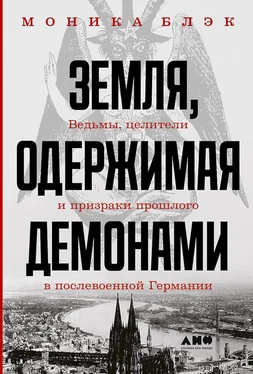
![Олеся Шалюкова - Призраки прошлого [СИ]](/books/35146/olesya-shalyukova-prizraki-proshlogo-si-thumb.webp)




![Мария Стрелова - Призраки прошлого [litres]](/books/414265/mariya-strelova-prizraki-proshlogo-litres-thumb.webp)
